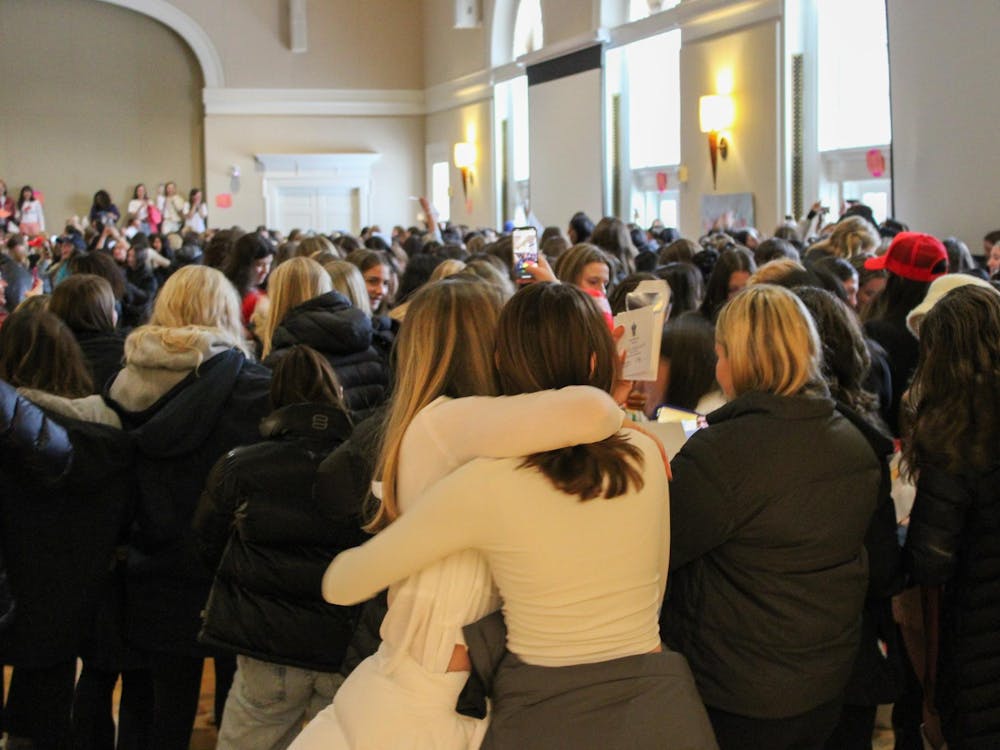Where can you watch hairspray used as rocket fuel, balloons shrivel under the influence of liquid nitrogen and methane bubbles lit on fire? PHYS 102, "Concepts of Physics II," is just the place.
For a class that mainly consists of non-science majors, one might think it would be hard to maintain student interest, but this is not the case for Physics Prof. Robert Watkins.
"I want people to realize that physics is the study of how the real world works," Watkins said. "The ultimate test of physics is experiments, so I want to do as many of those in class so that they can see it really does work. Plus, it's much more fun than studying out of a book."
Watkins, who also teaches an engineering course, has been a physics professor at the University since 1996. As an undergraduate, he attended the Massachusetts Institute of Technology and majored in physics. He then attended the University for graduate school.
"Charlottesville's the smallest town I've ever lived in," Watkins said, who grew up in Atlanta before moving to Boston and New York City, where he taught in the physics department at Columbia University for a year.
Watkins said he always had an interest in science throughout school, but more recently has developed some other non-academic interests.
"I started taking ballet six years ago and I love it-- it's just the most fun I've ever had," Watkins said. "If I had the talent and I had started young, I would have loved to be a professional ballet dancer. Seeing how there was no way that was going to happen, I'm happy just to be a small part of it."
In addition to his discovery of the marvels of ballet, Watkins also spends some time enjoying outdoor activities, mainly skiing and skydiving.
"For a couple of years, I was just totally hooked on skydiving -- I would go every weekend," he said. "I haven't done that for a while, [but] I highly recommend that to anybody."
On top of all these interests, there is still one more: filmmaking.
"I made a couple of short films when I was here in Charlottesville as a graduate student," Watkins said. "It's amazing how much work it is to make a film. One was 15 minutes long and one was 20 minutes long, and I would say each one took around 700 hours of work."
Despite the large time commitment, he said he felt all the work is well worth the effort.
"Once you do it, you're hooked," Watkins said. "I definitely hope to make a feature film sometime, but I'm not sure when that's going to be."
But as for right now, Watkins said he plans to continue showing students the wonders of physics, hopefully sparking their interest in something different, just as he has found hobbies from a broad range of areas.
Watkins said students often come to him asking for advice, to which he offers these words of wisdom: "Don't get too comfortable," he said. "It's actually good to keep yourself a little uncomfortable -- it makes you work harder and you'll be happier in the end."





